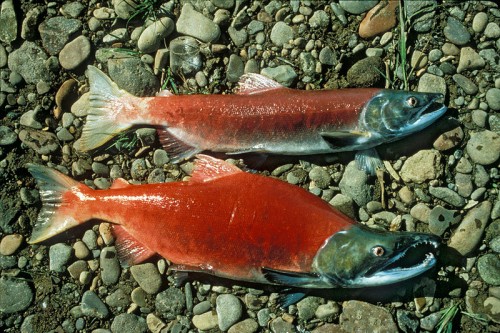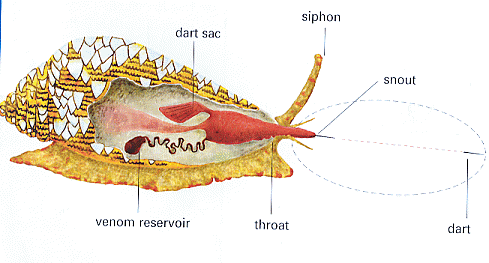Nurse Shark
The nurse shark is a large and very sluggish shark that lives on the bottom of the ocean.
Usually Nurse Sharks are harmless, unless they are provoked to anger.
Nurse sharks have extremely strong jaws and a very wide head with barbells protruding from it. (A barbell is a whisker looking protrusion that is made of flesh.)

Nurse Shark
Behind each of the nurse sharks eyes there is an organ that is called a spiracle that takes in water when the shark rests at the bottom.
The skin is dark greyish brown on the top and some nurse sharks have spots.
They are smoother skinned than most other sharks.
Nurse sharks are nocturnal, and rest during the daytime in small groups.
They seem to respond very well to captivity.
How the nurse shark was given its name is uncertain, however they do make a sucking sound that is reminiscent of a nursing baby.
Nurse sharks can range in lengths from about two feet up to 12 feet, with the largest found about 14 feet.
Nurse sharks have literally thousands of teech which are fan shaped and are used to crush shellfish.
They teeth are arranged in symmetrical rows that rotate into position if a new one is needed.
They eat bottom fish, shrimp, octopus, sea snails and lobster, as well as sea urchins.
Most of their hunting is done at night, and during the day they congregate into schools sometimes piling together on the bottom.

Nurse Shark
They live in very warm water, and are what is called a shallow shark. They generally don’t go deeper than about 200 feet.
The nurse shark will reproduce by letting her eggs develop inside her body after being fertilized and hatch inside her.
Her litter has about 20 or 30 young sharks, called pups that are mirror images of the adult nurse shark in every way.
They are not mature enough to mate until about 15 or 16 years old.
Nurse sharks do not migrate as many others do. When the weather grows cooler they decrease their activity, but stay in the cooler waters.




great site , i love to come and search and learn on it.
i have seen a nurse shark at my last trip in cuba but i did not have the time to take a picture of it. im making a smal web site on snorkling and i wonder if i can use your second picture of a nurse shark to put on my eventual web site. its a great picture and the shark look the same as the one that i have seen!
please be shure that i will give the links to your web site whit the picture.
thanks in advance for your response.
michel
Thanks for the kind words!
Feel free to use the image and good luck with your new site : )
wow………… can u tell me what predators they have????
I was fishing at plantation point at jervis bay & caught a nurse shark i was holding it in a rock pool to keep it alive so then i could realease it after a photo of it & he swung around & bit me on the leg even though he bit me i couldnt kill it.They are a good fish to look atthen to kill
nurse sharks are pretty much awesome, but cow sharks suck. Gars are super cool tho
why are they called nurse sharks
Nurse sharks are very interesting to me.
I think Nurse sharks have too many pups…..if I had 20-30 kids I would probbly kill myself….hahaha!!!